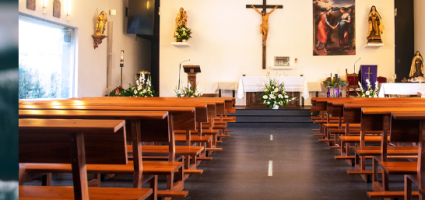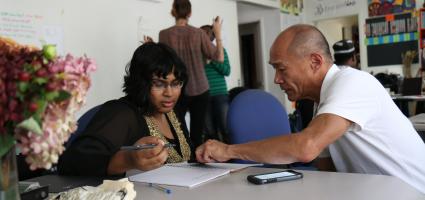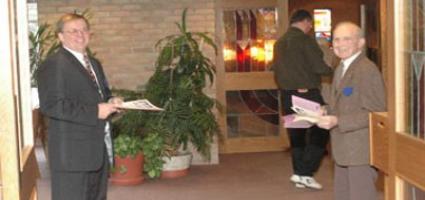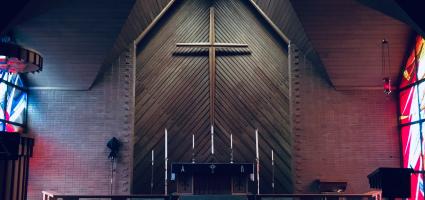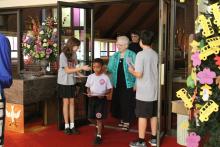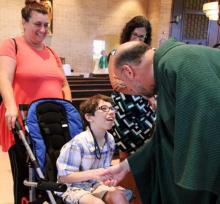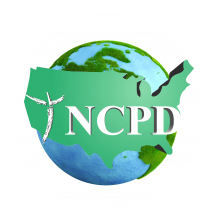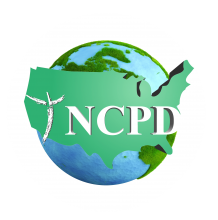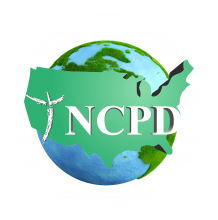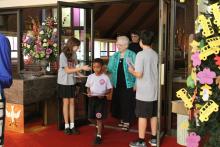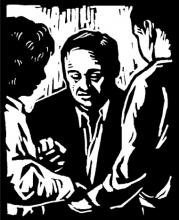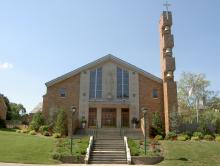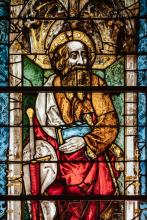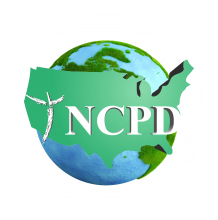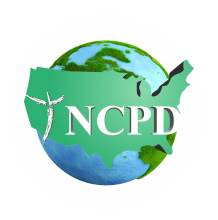Featured Resources

Survey of Parish Disability Awareness and Practices
As part of the National Catholic Partnership on Disability's (NCPD) Making Parishes Everyone’s Home program, NCPD seeks to implement best practices that address the needs of persons with disabilities through training, mentorship, and resource development.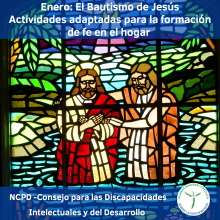
Enero: El Bautismo de Jesús Actividades adaptadas para la formación de fe en el hogar
Recordando Nuestro Bautismo El bautismo es el sacramento de la fe. Pero la fe requiere la comunidad de creyentes. Es solo dentro de la fe de la Iglesia que cada feligrés puede creer. La fe requerida para el bautismo no es una fe perfecta y madura, sino un comienzo que está llamado a desarrollarse. Se pregunta al catecúmeno o al padrino: "¿Qué le pides a la Iglesia de Dios?" La respuesta es: "¡Fe!"Strategic Components for Successfully Working with Individuals with ASD
Here are some strategies that can be used with individuals with Autism Spectrum Disorder. Not every child responds to every tactic. Choose the best strategies for the individual child. These ideas can also be used with children with other needs than autism, such as intellectual/developmental disabilities.Tips for Welcoming People with Disabilities at Mass
What to Expect - Before Mass More late arrivals than usual Be patient and maintain a welcoming spirit. More traffic / vans than usual Use traffic cones to designate areas where cars and vans can pull over close to the church entrance to unload passengers. Schedule an usher/greeter to welcome and assist these guests.Teaching Tips for Students with Autism
A few strategies for teaching students with Autism Spectrum Disorder!Prayers of the Faithful: Autism Awareness Month
In order to spread awareness in your parish about Autism Spectrum Disorder during Autism Spectrum Disorder Awareness month in April, choose one of these petitions to say during the Prayers of the Faithful during each weekend Mass for the month of April.Reflection: Blessed are those who weep, for they shall be comforted.
Jean Vanier reminds us that each Beatitude draws us closer to the Heart of Jesus. We begin to see with our own hearts and minds the humanness of the one who became our Savior. Today, we see the emotional Jesus who was so transparent that he “showed” his vulnerability with tears.Prayers to Foster Belonging
Commemoration of the Pastoral Statement on Persons with Disabilities Loving God You make each living person in your image …Your gift of love and commitment to the human race …A seed to build a community of interdependence and respect for all lifeAccess Surveys
The importance of thoughtful and careful planning for any ministry cannot be overemphasized. Planning should likewise be approached with creativity and openness. The following questions can initiate the planning process toward a universally designed ministry: What does it mean to create a church community open to all?Universal Design on a Diocesan Level
There is no question that organization and structure are essential to an effective ministry with people with disabilities. However, there is no oneway to structure this ministry, as evidenced by the variety of configurations currently operating in dioceses throughout the country. We are witnessing the downsizing or consolidation of many programs, and in some cases, directors have been required to assume responsibility for additional ministries. These trends have made clear the need for creativity and openness to change when considering how best to create a welcoming and inclusive community of faith for all, including Catholics with disabilities.
Theological Framework on Mental Illness, 2007
The National Catholic Partnership on Disability sets forth the following framework as a guide to the Church’s ministry for and with people with mental illness:Ethics Committee Letter to OPTN/UNOS on Organ Donation regarding VCA Living Donors, 2014
The U.S. Department of Health and Human Services (HHS) modified the OPTN Final Rule to include VCAs among transplantable organs, effective July 3, 2014. At its June meeting, the OPTN Board adopted an interim policy, without public comment but with a September 1, 2015, sunset provision. The VCA Transplantation Committee has solicited public comment on a proposal to make such policy permanent. Both provisions would permit living VCA donations.Opposing Maryland Assisted Suicide Bill of 2015 - Martin Benton 3/10/2015
Chairman Zirkin and distinguished Committee members, I appreciate the opportunity to testify this afternoon and register my strong opposition to Senate Bill (SB) 676, entitled the Richard E. Israel and Roger "Pip" Moyer Death with Dignity Act.Opposing Maryland Assisted Suicide Bill of 2015, 2015
My name is Stephen L. Mikochik. On behalf of NCPD and the thousands of disabled Maryland Catholics it serves, I testify in opposition to S.B. 676, which, in legalizing assisted suicide, is an open invitation to patient abuse.Opposing CA Assisted Suicide Bill, SB 128 7/2/2015
To Committee Chairs Stone and Bonta: My name is Stephen L. Mikochik. I am Professor Emeritus of Constitutional Law at Temple University in Philadelphia and past Chair of the National Catholic Partnership on Disability (NCPD). On behalf of NCPD and the thousands of disabled Catholics it serves, I would urge you, should it reach your desk, to veto Assembly Bill (AB) 15 that, in legalizing assisted suicide, is an open invitation to patient abuse.- 1 of 5
- next ›
Strategic Components for Successfully Working with Individuals with ASD
Here are some strategies that can be used with individuals with Autism Spectrum Disorder. Not every child responds to every tactic. Choose the best strategies for the individual child. These ideas can also be used with children with other needs than autism, such as intellectual/developmental disabilities.Teaching Tips for Students with Autism
A few strategies for teaching students with Autism Spectrum Disorder!Prayers of the Faithful: Autism Awareness Month
In order to spread awareness in your parish about Autism Spectrum Disorder during Autism Spectrum Disorder Awareness month in April, choose one of these petitions to say during the Prayers of the Faithful during each weekend Mass for the month of April.Access Surveys
The importance of thoughtful and careful planning for any ministry cannot be overemphasized. Planning should likewise be approached with creativity and openness. The following questions can initiate the planning process toward a universally designed ministry: What does it mean to create a church community open to all?Ethics Committee Letter to OPTN/UNOS on Organ Donation regarding VCA Living Donors, 2014
The U.S. Department of Health and Human Services (HHS) modified the OPTN Final Rule to include VCAs among transplantable organs, effective July 3, 2014. At its June meeting, the OPTN Board adopted an interim policy, without public comment but with a September 1, 2015, sunset provision. The VCA Transplantation Committee has solicited public comment on a proposal to make such policy permanent. Both provisions would permit living VCA donations.

